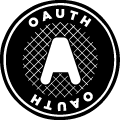 I’m pleased to announce that Nat Sakimura, John Bradley, and I have created an OAuth 2.0 Discovery specification. This fills a hole in the current OAuth specification set that is necessary to achieve interoperability. Indeed, the Interoperability section of OAuth 2.0 states:
I’m pleased to announce that Nat Sakimura, John Bradley, and I have created an OAuth 2.0 Discovery specification. This fills a hole in the current OAuth specification set that is necessary to achieve interoperability. Indeed, the Interoperability section of OAuth 2.0 states:
In addition, this specification leaves a few required components partially or fully undefined (e.g., client registration, authorization server capabilities, endpoint discovery). Without these components, clients must be manually and specifically configured against a specific authorization server and resource server in order to interoperate.
This framework was designed with the clear expectation that future work will define prescriptive profiles and extensions necessary to achieve full web-scale interoperability.
This specification enables discovery of both endpoint locations and authorization server capabilities.
This specification is based upon the already widely deployed OpenID Connect Discovery 1.0 specification and is compatible with it, by design. The OAuth Discovery spec removes the portions of OpenID Connect Discovery that are OpenID specific and adds metadata values for Revocation and Introspection endpoints. It also maps OpenID concepts, such as OpenID Provider, Relying Party, End-User, and Issuer to their OAuth underpinnings, respectively Authorization Server, Client, Resource Owner, and the newly introduced Configuration Information Location. Some identifiers with names that appear to be OpenID specific were retained for compatibility purposes; despite the reuse of these identifiers that appear to be OpenID specific, their usage in this specification is actually referring to general OAuth 2.0 features that are not specific to OpenID Connect.
The specification is available at:
An HTML-formatted version is also available at:
 After input from many interested people, IETF Security Area Director Kathleen Moriarty decided that the right place for the CBOR Web Token (CWT) work is the ACE working group. Today Erik Wahlström posted a new draft of the CBOR Web Token (CWT) specification that is intended for ACE.
After input from many interested people, IETF Security Area Director Kathleen Moriarty decided that the right place for the CBOR Web Token (CWT) work is the ACE working group. Today Erik Wahlström posted a new draft of the CBOR Web Token (CWT) specification that is intended for ACE.


